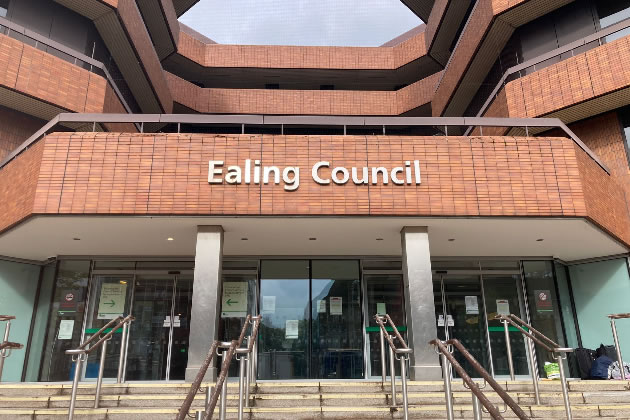Ealing Council Still Over Budget Despite £9 million Spending Reduction
Savings have come from lower borrowing and investment income

Ealing Council will make the decision on tax rises early next year
December 13, 2022
Ealing Council is still forecast to go £5 million over budget after reducing spending by £9 million in the latest financial quarter. The decrease in overspend comes as the council confirms no services have been cut to control finances, despite £2 million needing to be cut from the health services budget.
The borough is forecast to overspend £5.73 million this financial year, the latest budget report has revealed. This is a reduction of £9 million compared to the forecast overspend of £14.79 million in October. The drop is a result of a postponement of capital project which has reduced projected borrowing costs and an increase in investment income due to higher interest rates.
Speaking on Wednesday, 7 December, Councillor Steve Donnelly, cabinet member for inclusive economy, said, “This doesn’t of course mean the underlying pressures we and all local authorities are facing, particularly around Children, Adults and Social Care, have gone away and we will continue to tackle those and other issues head-on into the New Year.”
These savings have come from lower borrowing costs due to delayed projects and higher investment income due to increases in investment rates. No service cuts have been made to secure the £9 million reduction.
But, the budget report adds that the council continues to operate in a “challenging environment” which can still be negatively impacted by rising inflation and energy prices, the ongoing impact of COVID-19, and the cost of living crisis.
The report shows that £2m of savings still needs to be found in the council’s ‘Healthy Lives’ portfolio which includes public health, adult social care, and leisure centres. It is not thought these savings will be achieved this year according to the report.
Cllr Donnelly continued, “It is clear we won’t and don’t intend to depend on this kind of income for the medium to long term as we spend on capital projects, then the capital that is accruing interest for us will reduce so by definition it is not a long term project but in the meantime, the way in which we have managed our borrowing and the way in which we have invested the sums we have available to us has enabled us to put £10m pounds in the council’s coppers that otherwise wouldn’t have been there.”
After the meeting last week, a council spokesperson added, “The reduction in the overspend is predominantly due to the change in the forecast on corporate budgets.
“This variance is explained through an increased underspend on treasury management which is a result of lower-than-expected external (PWLB) borrowing costs due to delays to significant capital projects and an increase in investment income due to higher-than-expected cash balances and increases in interest rates.
“There are other smaller improvements but these have not involved any service cuts.”
Megan Stanley - Local Democracy Reporter